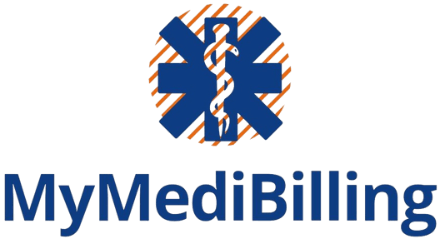Introduction
The insurance claims process can be a daunting and time-consuming task for many individuals. It involves the submission of a claim to an insurance company for reimbursement of a loss covered by the policy. Understanding the insurance claims process is crucial for expediting the process and ensuring a smooth and efficient resolution.
The process typically involves notifying the insurance company of the loss, providing documentation and evidence to support the claim, and working with the insurance adjuster to assess the damage and determine the amount of compensation. It is important to familiarize yourself with the terms and conditions of your insurance policy to ensure that you are aware of what is covered and what is not. Additionally, understanding the timelines and deadlines for filing a claim is essential to avoid any delays in the process.
One key aspect of understanding the insurance claims process is knowing your rights as a policyholder. It is important to be aware of the laws and regulations governing insurance claims in your state or country, as well as any consumer protection laws that may apply. This knowledge can help you navigate the claims process more effectively and ensure that you are treated fairly by the insurance company.
By understanding the insurance claims process, policyholders can better advocate for themselves and ensure that they receive the compensation they are entitled to on time.
Key Takeaways
- Understanding the insurance claims process is crucial for a smooth and efficient experience.
- Streamlining your insurance claims can save time and reduce stress during the process.
- Avoid common mistakes such as delaying reporting the claim or providing incomplete information.
- Expedite your insurance claims by promptly submitting all required documentation and information.
- Leveraging technology and working with professionals can accelerate the insurance claims process and improve outcomes.
Tips for Streamlining Your Insurance Claims
Streamlining the insurance claims process can help expedite the resolution of your claim and minimize any potential delays or complications. One tip for streamlining your insurance claims is to report the loss to your insurance company as soon as possible. Promptly notifying your insurer of the loss can help initiate the claims process and prevent any further damage or loss from occurring.
Additionally, providing thorough and accurate documentation to support your claim can help expedite the assessment and evaluation of your claim by the insurance adjuster. This may include photographs, receipts, estimates, and any other relevant evidence to substantiate your claim. Another tip for streamlining your insurance claims is to maintain open and clear communication with your insurance company throughout the process.
Keeping in regular contact with your claims adjuster can help ensure that your claim is being processed promptly and that any additional information or documentation required is provided promptly. It is also important to keep detailed records of all communication with your insurer, including phone calls, emails, and letters, to track the progress of your claim and address any potential issues or concerns that may arise. By following these tips for streamlining your insurance claims, policyholders can help expedite the resolution of their claims and minimize any potential delays or complications.
Common Mistakes to Avoid in the Insurance Claims Process
There are several common mistakes that policyholders should avoid when navigating the insurance claims process. One common mistake is failing to read and understand the terms and conditions of their insurance policy. Policyholders need to familiarize themselves with their policy coverage, exclusions, deductibles, and any other relevant details to ensure that they are aware of what is covered and what is not.
Failing to do so can lead to misunderstandings and disputes with the insurance company, potentially delaying the resolution of the claim. Another common mistake in the insurance claims process is providing incomplete or inaccurate information to the insurance company. Policyholders must provide thorough and accurate documentation to support their claim, including photographs, receipts, estimates, and any other relevant evidence.
Failing to do so can result in delays in the assessment and evaluation of the claim, as well as potential disputes with the insurer over the amount of compensation owed. By avoiding these common mistakes in the insurance claims process, policyholders can help ensure a smoother and more efficient resolution of their claims.
How to Expedite Your Insurance Claims
| Secrets | Benefits |
|---|---|
| 1. Digital Claims Processing | Reduces paperwork and processing time |
| 2. Automated Communication | Improves customer satisfaction and reduces delays |
| 3. Data Analytics | Identifies trends and areas for improvement |
| 4. Streamlined Workflows | Reduces bottlenecks and improves efficiency |
| 5. Customer Self-Service | Empowers customers and reduces administrative tasks |
Expedited resolution of insurance claims can be achieved through several strategies and tactics. One way to expedite your insurance claims is to work with a reputable and experienced public adjuster. Public adjusters are licensed professionals who can help policyholders navigate the claims process, negotiate with the insurance company on their behalf, and ensure that they receive fair compensation for their loss.
By leveraging the expertise and resources of a public adjuster, policyholders can expedite the resolution of their claims and maximize their compensation. Another way to expedite your insurance claims is to leverage technology to streamline the claims process. Many insurance companies now offer online claims filing and tracking systems, which can help policyholders submit their claims more efficiently and monitor the progress of their claims in real-time.
Additionally, using digital tools such as smartphone apps and cloud-based storage can help policyholders organize and store their documentation more effectively, making it easier to provide evidence to support their claims. By utilizing these strategies to expedite their insurance claims, policyholders can minimize delays and complications in the claims process and achieve a faster resolution.
The Importance of Documentation in Insurance Claims
Documentation plays a critical role in supporting an insurance claim and expediting its resolution. Thorough and accurate documentation can help substantiate the extent of the loss and provide evidence to support the claim, which is essential for securing fair compensation from the insurance company. Policyholders should document the damage or loss as soon as it occurs by taking photographs or videos, as well as keeping any relevant receipts, estimates, or invoices related to the loss.
This documentation can help provide a clear and comprehensive picture of the damage or loss, which is crucial for facilitating the assessment and evaluation of the claim by the insurance adjuster. In addition to documenting the damage or loss, policyholders should also keep detailed records of all communication with their insurance company throughout the claims process. This includes keeping copies of all correspondence, such as emails, letters, and phone call logs, as well as noting any important details or agreements made during these interactions.
Maintaining thorough documentation of all aspects of the claims process can help policyholders track the progress of their claims, address any potential issues or concerns that may arise, and provide evidence to support their case if disputes with the insurer occur. By recognizing the importance of documentation in insurance claims and maintaining comprehensive records throughout the process, policyholders can expedite the resolution of their claims and ensure that they receive fair compensation for their loss.
Leveraging Technology to Accelerate Insurance Claims
Advancements in technology have revolutionized the way insurance claims are processed and resolved, offering new opportunities for policyholders to accelerate their claims. One way to leverage technology to accelerate insurance claims is through digital documentation tools. Smartphone apps and cloud-based storage platforms allow policyholders to easily capture and store documentation related to their claim, such as photographs, receipts, estimates, and other relevant evidence.
This digital documentation can be quickly accessed and shared with the insurance company, expediting the assessment and evaluation of the claim by providing clear and comprehensive evidence to support it. Another way technology can accelerate insurance claims is through online claims filing and tracking systems offered by many insurance companies. These systems allow policyholders to submit their claims electronically, eliminating the need for paper forms and mail submissions, which can often result in delays in processing.
Additionally, online tracking systems enable policyholders to monitor the progress of their claims in real-time, providing transparency and visibility into the status of their claims throughout the process. By embracing these technological advancements in insurance claims processing, policyholders can streamline their claims and achieve a faster resolution.
Working with Professionals to Facilitate Insurance Claims
Working with professionals such as public adjusters or legal counsel can be instrumental in facilitating an insurance claim and expediting its resolution. Public adjusters are licensed professionals who specialize in navigating the insurance claims process on behalf of policyholders. They can help policyholders assess their losses, document their claims, negotiate with the insurance company, and ensure that they receive fair compensation for their losses.
By leveraging the expertise and resources of a public adjuster, policyholders can expedite the resolution of their claims and maximize their compensation. In some cases, policyholders may also benefit from seeking legal counsel to assist with their insurance claims. Legal professionals who specialize in insurance law can provide valuable guidance and representation throughout the claims process, particularly in cases where disputes or disagreements with the insurer arise.
Legal counsel can help policyholders understand their rights under their insurance policy, advocate on their behalf during negotiations with the insurer, and pursue legal action if necessary to secure fair compensation for their loss. By working with professionals such as public adjusters or legal counsel, policyholders can navigate the complexities of the insurance claims process more effectively and achieve a faster resolution for their claims.
Conclusion
understanding how to speed up your insurance claims process is crucial for ensuring a smooth and efficient resolution.By familiarizing yourself with the insurance claims process, streamlining your claims, avoiding common mistakes, expediting your claims through various strategies, recognizing the importance of documentation, leveraging technology advancements, and working with professionals when necessary, you can expedite your claim’s resolution while maximizing your compensation from your insurer. These secrets will help you navigate through what could be a daunting task more effectively while ensuring that you receive fair treatment from your insurer.


